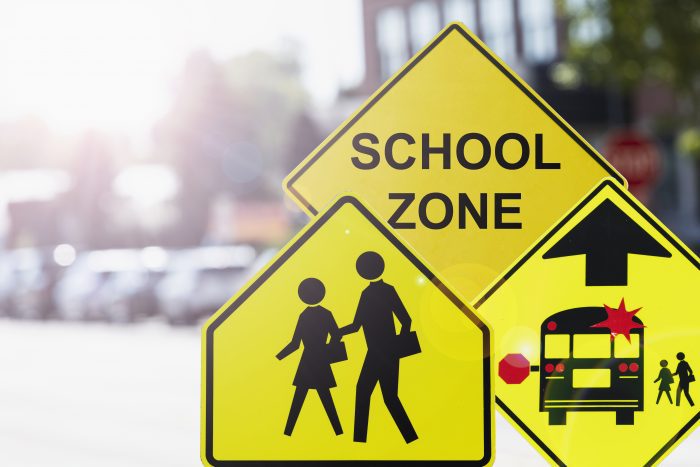Editorial: Birds of a feather, in our cars together
County officials are currently engaged in a contentious debate over the Suffolk County School Bus Safety Program.
Proponents say the program bolsters traffic safety around school buses. Detractors argue the program represents little more than a convenient revenue generator to plug holes in the county budget.
Promoting safety on public roads remains a priority regardless of where one stands on the program itself.
New York State Vehicle and Traffic Law is a worthy undertaking to protect school children. Whether cameras remain strapped to school buses, drivers should always be vigilant near a school bus with flashing yellow lights.
Under no circumstances should one ever pass a school bus while the stop arm is extended.
But roadway safety is not isolated to school buses. The U.S. Department of Transportation National Highway Traffic Safety Administration estimates that 42,915 people died in traffic crashes in 2021. That’s a 10.5% increase from the previous year.
NHTSA reports collected from 2016 to 2020 indicate that nearly 1,000 vehicular fatalities occurred on Long Island, more than half of which were in Suffolk County.
Statistics aside, we read almost weekly reports of individuals involved in significant motor vehicle accidents within our coverage area. Many times, they include serious bodily injury to the victims. At other times, they can be fatal.
Long Island is unique in its autocentric character. Development of our Island happened nearly a century ago, and the suburbanization of Long Island happened almost simultaneously with the growth of the American automobile industry.
Planners, notably Robert Moses, saw the car as offering individual autonomy. They viewed the Long Island Dream as an expression of that individualistic promise.
Unfortunately, they failed to provide sufficient mass transit infrastructure, twisting a dream into our difficult reality.
Today, Long Islanders are glued to their cars. For most of us, getting to work requires a car. Having success in our professional and social lives requires a car. For those who do not live within walking distance of a train station, accessing the rail requires a car.
All of this highlights the need to drive responsibly.
When we operate a moving vehicle, we harness the power to unleash great bodily injury — even death — upon ourselves and others. At the same time, we can monitor our decisions and protect our fellows on the roads.
We can make our roads safer by following the speed limits, driving sober and taking extra precautions when we get behind the wheel.
Unfortunately, we Long Islanders are stuck in our cars for the foreseeable future. But we are stuck together.
Let us be mindful of our neighbors. Let us regard the lives of other drivers as we would our family members or friends.
We can help make these roads safer for all through our positive choices today.







